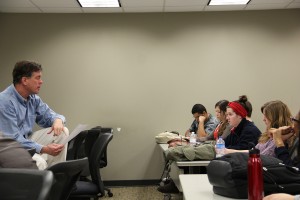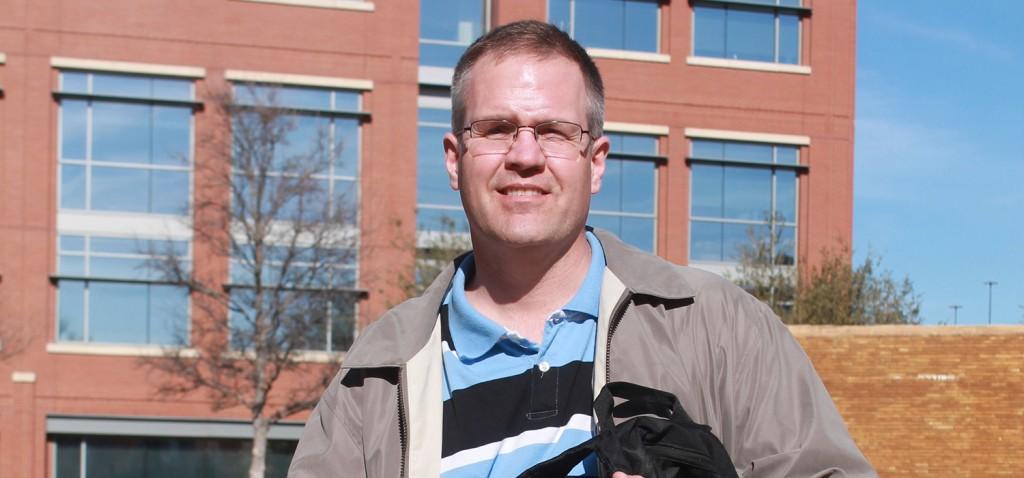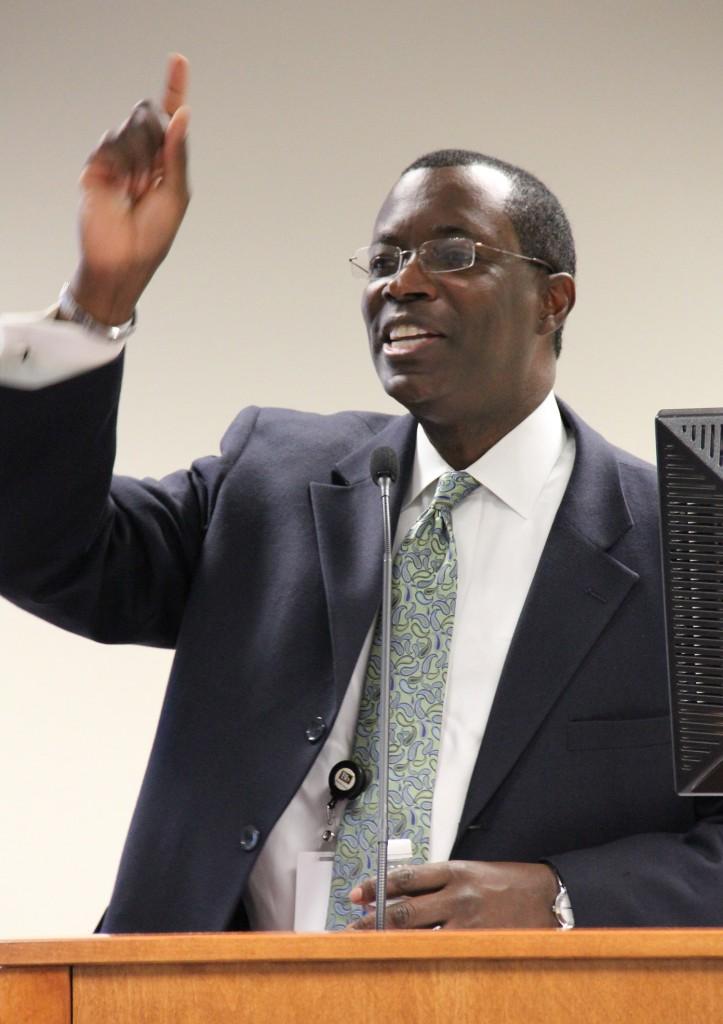By Kenney Kost/managing editor

Photo by Zach Estrada/The Collegian
The Cornerstone honors program, which has been dormant on some campuses, is now a certified degree program and coming to all five campuses this fall.
NE English assistant professor Donovan Hufnagle said TCC has had honors courses for roughly 30 years.
“It’s been here a long time,” Hufnagle said. “Then about four or five years ago, we went through some changes, and it kind of dissipated on every campus except maybe the NW Campus. They were already pretty much doing Cornerstone, so it was easy for them to keep it going through the transition. The other campuses were kind of doing their own thing with honors courses. It just wasn’t aligned from campus to campus.”
Over the break, TCC worked to make Cornerstone a certified honors degree program.
“On the transcript, it always signified they had completed honors courses,” he said. “Now if they complete the program, they receive an honors degree. So when they transfer to a university, they will see that the student received an honors degree. Not just an A.A. [Associate of Arts] degree, they get an honors A.A. degree.”
In the process of getting certified, TCC also aligned the program across all five campuses. NW and NE already have the program implemented while TR, SE and South are working to get their programs up and running for the fall semester.
TR vice president of academic affairs Bryan Stewart said Cornerstone has been on the minds of faculty and administration since the campus opened and believes this is the right time.
“Our enrollment numbers are growing, and there is definitely interest here among our students,” Stewart said. “We would like to say yes for the fall, but right now we are putting our energy into focus groups over the next couple of weeks with faculty and students.”
The purpose of the focus groups, he said, is to gauge the interest level of the students as well as what they are looking for in an honors program.
“We want to hear how they think it will impact them and what we can do to help students get the most of the program,” he said. “We want them to be able to add their own flavor.”
Along with the district syllabus course requirements, Cornerstone classes put an emphasis on in-depth research and community service, Hufnagle said. Students must log a certain amount of community service hours per semester, which is tied to a final honors project.
“We told them it’s like a mini-thesis,” he said. “It’s not very long, but it basically incorporates what they have learned in the classroom and how they are going to apply that in the community.”
NW student Mario Montesorro said he believes Cornerstone is putting him on a path to success that he couldn’t reach without the program.
“It will provide the leadership skills and the networking opportunities to take my education to the next level,” he said.
NW biology professor Lynn Preston said the program’s benefits are numerous, but a major one is that a learning community develops from being in close proximity to like-minded students serious about education.
“Going through 22 core curriculum hours with the same students is also a good transition from the high-school setting where they are with the same people in classes for four years,” Preston said. “When you get to college, every class is different, and that can sometimes take away from the community aspect for those who choose not to get involved.”
The challenges students will face prepares them for a seamless transition into a four-year university honors program and opens the door to many scholarship opportunities, Preston said.
“The work they do in the program is much more similar to the work they will have to do in their junior and senior years in college as well as the graduate level,” she said. “The universities will also be able to see that they are leaders. This makes them much more desirable to universities.”
Entry into the program is based on GPA, community service and leadership qualities, Hufnagle said. Students need to have a 3.5 GPA or the high school equivalent and have participated in a fair amount of community service. However, the 3.5 mark is not set in stone, Hufnagle said, because there is an understanding that a person’s perspective may change from high school into college.
“We’re looking for the top students,” he said. “GPA isn’t the only thing we look at. We had a couple students who didn’t have the 3.5, but they had so much community service and leadership qualities, they are what we call the sleeper student. Maybe they didn’t take high school as seriously but have that drive to want to be a good student.”
Students interested in the program can call Preston at 817-515-7629 or Hufnagle at 817-515-6251.




























